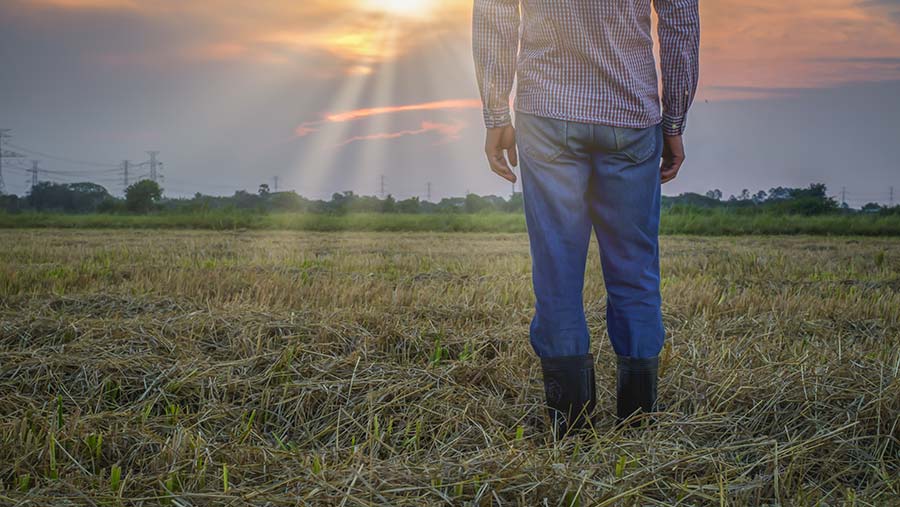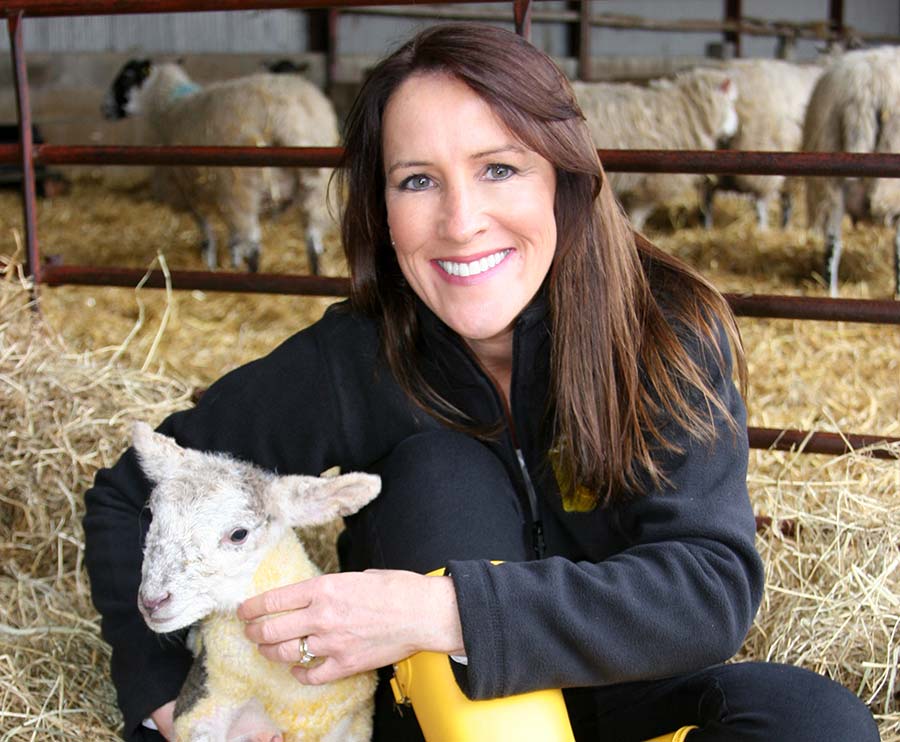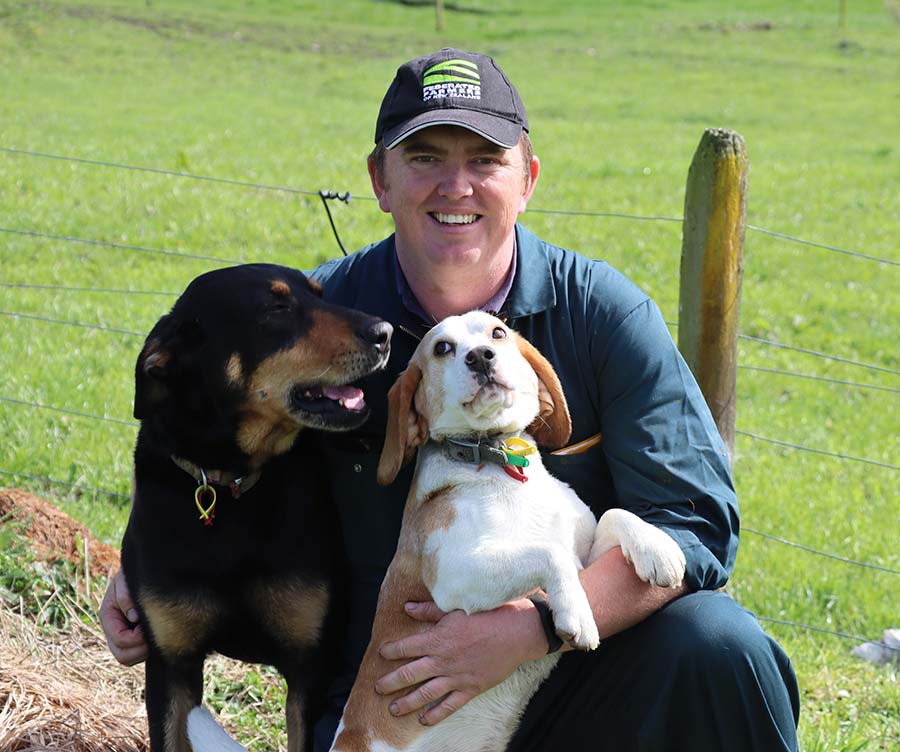Covid crisis worsening farmers’ mental health
 © Adobe Stock
© Adobe Stock The Covid lockdown is leading to worsening mental health among farmers, which could be driving the unacceptably high level of suicides, according to farm safety campaigner Stephanie Berkeley.
Addressing a webinar on mental wellbeing as part of the Dairy-Tech Online event, the Farm Safety Foundation manager explained that, in 2019, there had been 102 registered suicides in agriculture and the related trades, plus a further 21 recorded in Scotland.
See also: Mental health support available to young farmers
Farmers are exposed to all manner of stresses, such as rural isolation, Brexit uncertainty, market fluctuations and policy change. And when stress becomes excessive, it can feel worse than a physical illness, Ms Berkeley said.
“So what do we normally do to bust that? We go out, we socialise, we meet people,” she said.

© Stephanie Berkeley
“But right now, because we are in a third national lockdown, and we’ve got other lingering uncertainties and we’ve got weather issues which are out of farmers’ control, there is an increased level of stress, fear and anxiety.
“And that can be accelerated through working long hours – if you’re lambing, if you’re calving, if you’re isolated from your friends and your family and others in the farming community that you rely on.”
Depression
Last August, a survey by the Office of National Statistics found that one in five adults was experiencing some form of depression, compared with one in 10 before the pandemic.
“This is something we need to be talking about,” said Ms Berkeley, whose charity is launching its fourth annual Mind Your Head campaign next week.
Recent research has shown that 88% of farmers under the age of 40 rank poor mental health as the biggest hidden problem facing the sector, while 89% say talking about it is key to removing any stigma.
Poor mental health is also closely linked to agriculture’s dismal farm safety record, with 20 more farmers and farmworkers losing their lives in the workplace in 2019-20 – the worst record of any sector.
“We need to normalise conversations about mental health, just as much as physical health and it is something we need to look out for,” said Ms Berkeley.
Signs to look out for
- Avoiding social activities
- Difficulty speaking or thinking clearly or decision making
- Difficulty remembering or concentrating
- Using more tobacco or alcohol
- Difficulty sleeping or sleeping too much
- Undereating or overeating
- Feeling tired and physical aches
- Self-harming or suicidal behaviour
Signs to look out for at work
- Making more mistakes or forgetting tasks
- Taking on too much
- Arriving late for work
- Working too many hours
Source: Farm Safety Foundation
The Mind Your Head campaign kicks off on Monday 15 February and runs all week. For more information and advice, visit yellowwellies.org or follow @yellowwelliesUK on social media. Also share any material promoting mental health awareness widely using the hashtag #MindYouHead.
A single helpline has been set up by the umbrella organisation Farming Help to point anyone with difficulties to the most appropriate source of advice. Call 03000 111999.
Case study: Wayne Langford, Golden Bay, New Zealand
New Zealand dairy farmer Wayne Langford shared his story with the Dairy-Tech Online audience, explaining how he had suffered from depression for almost two years before seeking help and setting out on the road to recovery.
Symptoms had included tiredness, spending more time in bed, forgetfulness on the farm, anger and irritability which was rubbing off on his family.
Finally, on his 34th birthday, he had an “out of body experience” which convinced him it was time to do something about it.

© Wayne Langford
He started talking, and also embarked on a so-called Yolo campaign – standing for You Only Live Once – committing himself to doing something every day for a year, “to say that we’ve lived for that day”.
Mr Langford made a decision that the farm would come second to his family. He also got involved with local environmentalists to look at more sustainable ways of running the farm, and started making donations of meat and milk to local food banks.
Questions
Farmers often put pressure on themselves to produce more, to be the best, to keep the farm tidy – but Mr Langford says they should question that.
“When I get to the pearly gates, I’m pretty sure the Lord’s not going to ask me how many milk solids I did per kilo or how many litres I produced over my life. He’s going to ask me what I did with my life, how much I enjoyed it.
“If you are struggling, just reach out. It’s one of the hardest things you’ll ever do, but just reach out and talk to someone.
“To tell people that you are feeling weak, that you are not doing well – it’s really scary. I remember thinking I’d be locked up, put in a straightjacket – but it’s so far from the truth.
“You’re just like a tractor – you’ve overheated, you’ve cooked your mind a little bit. You just need to take a break, slow it down and you’ll be back in business.”
